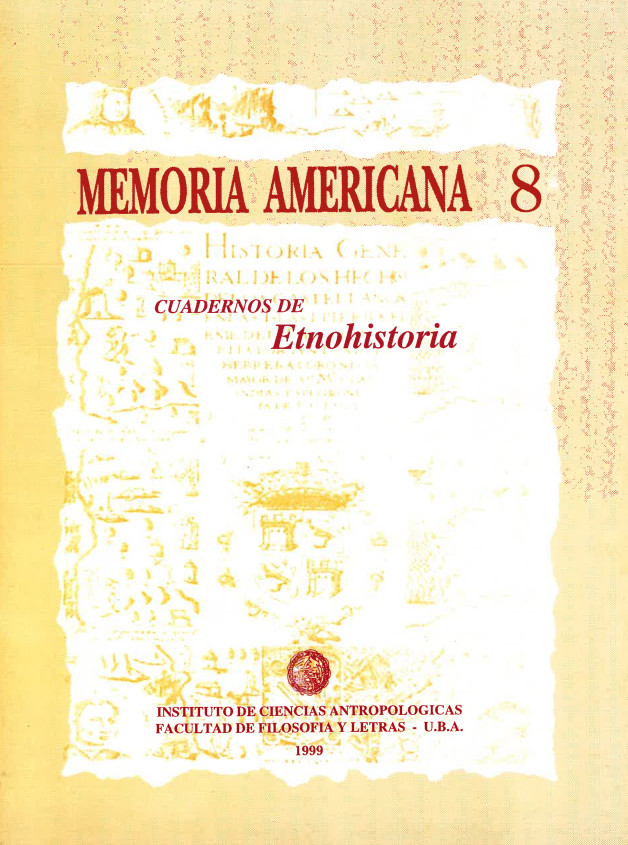The Guaraní attitude towards the expulsion of the Jesuits. Rituality, reciprocity and social space
Abstract
In 1767, King Charles III signed a decree expelling the Jesuits from the Spanish domains. This measure had a special effect upon the River Plate and Paraguay areas where the Jesuits developed a stong religious program building up a system of 30 Guarani towns known as "Provincia Jesuítica del Paraguay" (Jesuit Paraguayan Province). In this work we analyze the expulsion process in its different phases, interpreting from an anthropological viewpoint- the indigenous attitude towards the change of government. We suggest the Indians perceived this change as a continuity of their reciprocal and ritual practices of their own life style. Through several ceremonial scenes the actors gave new meaning to the Spanish-Indian relations and at the same time differences between civilian and religious power arose. The new relations had the spatial effect of making the King´s charismnatic figure central.Downloads
Copyright (c) 1999 Memoria Americana. Cuadernos de Etnohistoria

This work is licensed under a Creative Commons Attribution-NonCommercial-ShareAlike 4.0 International License.
Los derechos de autor son cedidos a Memoria Americana. Cuadernos de Etnohistoria, no obstante los autores podrán recuperarlos y reproducir su trabajo en otros medios o formatos previo envío de solicitud al Comité Editorial. En tales casos, deberá citarse a Memoria Americana. Cuadernos de Etnohistoria como primera publicación del trabajo y el mismo queda bajo una licencia Creative Commons CC BY NC SA 3.0 Attribution- Non Commercial -ShareAlike 3.0, la cual provee libre acceso inmediato a sus contenidos pues se rige por el principio según el cual hacer disponible -en forma gratuita- la investigación al público fomenta un mayor intercambio de conocimiento a nivel global.
Los autores deberán remitir el siguiente formulario de cesión de derechos y compromiso de originalidad:
Cesión de derechos y compromiso de originalidad
Al Comité Editorial de Memoria Americana, Cuadernos de Etnohistoria
Por la presente declaro ser el autor del trabajo titulado (nombre del artículo), el mismo es original y propio y no ha sido publicado en ningún formato o soporte con anterioridad.
En caso de ser aceptado para su publicación en Memoria Americana. Cuadernos de Etnohistoria (número/año) cedo los derechos editoriales que me corresponden por el aludido artículo para su publicación en todos los formatos que posea la mencionada revista.
Si quisiera publicar este artículo a través de otro editor o en otro lugar me comprometo a solicitar el correspondiente permiso por escrito al Comité Editorial de Memoria Americana. Cuadernos de Etnohistoria. De ser afirmativa la respuesta del Comité Editorial me comprometo a lo siguiente:
- especificar lugar, editorial y fecha de la primera publicación del artículo en la nueva publicación
- realizar esta republicación sólo luego de transcurridos un año calendario desde la fecha de la presente nota de cesión de derechos
FIRMA
Aclaración











